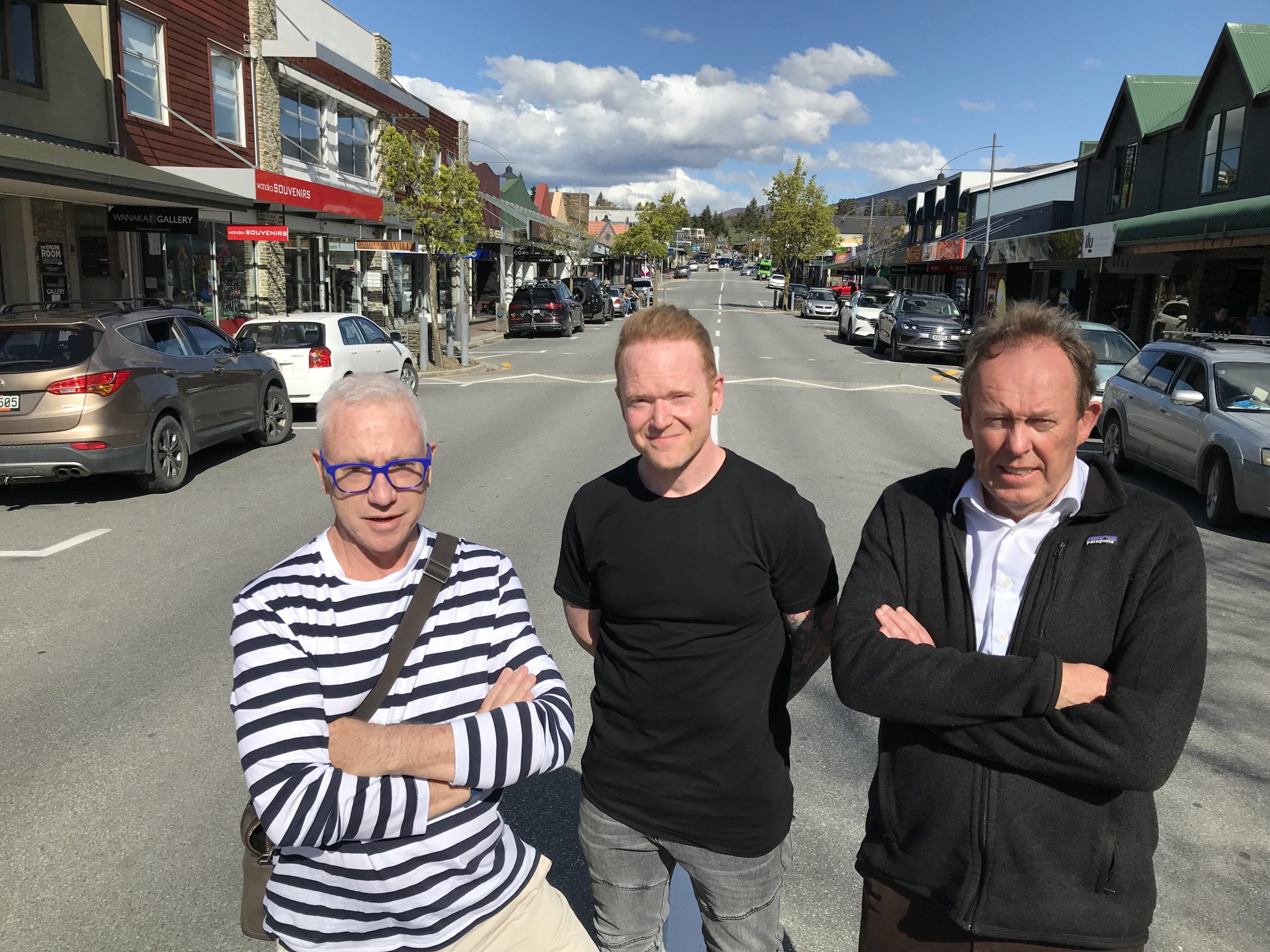After 20 years, the Heart of Wanaka (How) town centre jigsaw puzzle is finally coming together, but not all retailers are happy.
After two years of meetings, workshops and planning, a group of Wanaka town centre businesspeople will present final urban design documents to the Wanaka-Upper Clutha Community Board on July 27.
Urban designer and How group member Garth Falconer released the plans to the Otago Daily Times recently.
‘‘They are the result of two years’ voluntary work. I think the volunteers have done really well,’’ he said.
How group member and cafe owner Chris Hadfield, who is also deputy chairman of the Wanaka-Upper Clutha Community Board, said he believed most central businesses supported the plans.
However, Wanaka businessmen Dave Crawford and Brian Kreft said that was not the case, and they could not support the design concepts in their present state.
Mr Crawford chairs the town centre Property Owners Group (Pog), a committee comprising Kevin King, Shaun Gilbertson, Ian Weir and Jules Adams.
Brian Kreft is the ‘‘pro-tem’’ chairman of another group, the Wanaka Town Centre Business Group.
The groups worked together to give feedback to the How group.
In a joint statement, Mr Crawford and Mr Kreft said they had made ‘‘numerous attempts’’ to make their thoughts heard by How but came away feeling disappointed, their input had not been respected and they had not been adequately consulted.
‘‘Representatives from Pog have met with How and, while our concerns were heard, they have certainly not been taken on board,’’ Mr Crawford and Mr Kreft said.
How was presenting ‘‘an unbalanced perspective to the media and the community board for endorsement and subsequent adoption’’, they said.
How should wait until the council had finished revising Wanaka’s strategic traffic and parking management plan for the town centre, Mr Crawford and Mr Kreft said.
They believed there was a perceived ‘‘lack of transparency’’ in How’s consultation process and feared for ‘‘the town’s wellbeing and viability’’ if How’s plan was adopted.
The town centre’s future viability needed to be assessed alongside population growth and the growing Three Parks development on the outskirts of Wanaka, they said.
How had also proposed an unacceptable reduction of carparks.
‘‘In our opinion, the town needs to retain the ability to park and access the CBD, given the advent and huge increase of electric and hybrid vehicles on New Zealand roads,’’ Mr Crawford and Mr Kreft said.
They acknowledged it was ‘‘unfortunate’’ the CBD was constrained and had little land available to build more parking lots.
Creating additional carparks in Hedditch St was one initiative they could agree with, and would go some way towards providing all-day carparks for workers.
The business groups would make a submission to the community board when How presented the plans on July 27.
How is the latest in a line of groups and working parties that have formed over the last 20 years to come up with urban design concepts that would guide future development and provide cohesion to the look and feel of the town centre.
It was formed in 2021, in response to Wanaka’s ‘‘growing pains’’ and concerns shops were relocating to Three Parks.
Mr Falconer said development applications were lodged piecemeal and the council had recently announced a review of density and height restrictions, which would affect the future of the town centre.
How’s plans should provide background and key principles to help improve outcomes, he said.
‘‘[How members] have been actively meeting and engaging with a broad range of the community, gathering a spectrum of views on issues, ideas and priorities. And while it isn’t possible to get total consensus, the group believe they have got to a point where there is a fair representative balance of interests and aspirations,’’ Mr Falconer said.
Among proposed strategies were rearranging parking, relocating bus stops and returning the lakefront to recreation and pedestrian use.
How was ‘‘very cognisant’’ of public calls to retain parking spaces, he said.
‘‘We believe the key to parking is better management. At the moment, it is pretty much a free-for-all.
‘‘We appreciate the time people have put into meeting with us. Wehave met with many, many groups and we hope this contribution will be helpful,’’ Mr Falconer said.
If the community board endorsed and adopted the plan, How would continue working on the strategies, he said.
No budgets had been prepared. How’s work had been at a higher level of conceptual planning, Mr Falconer said.





